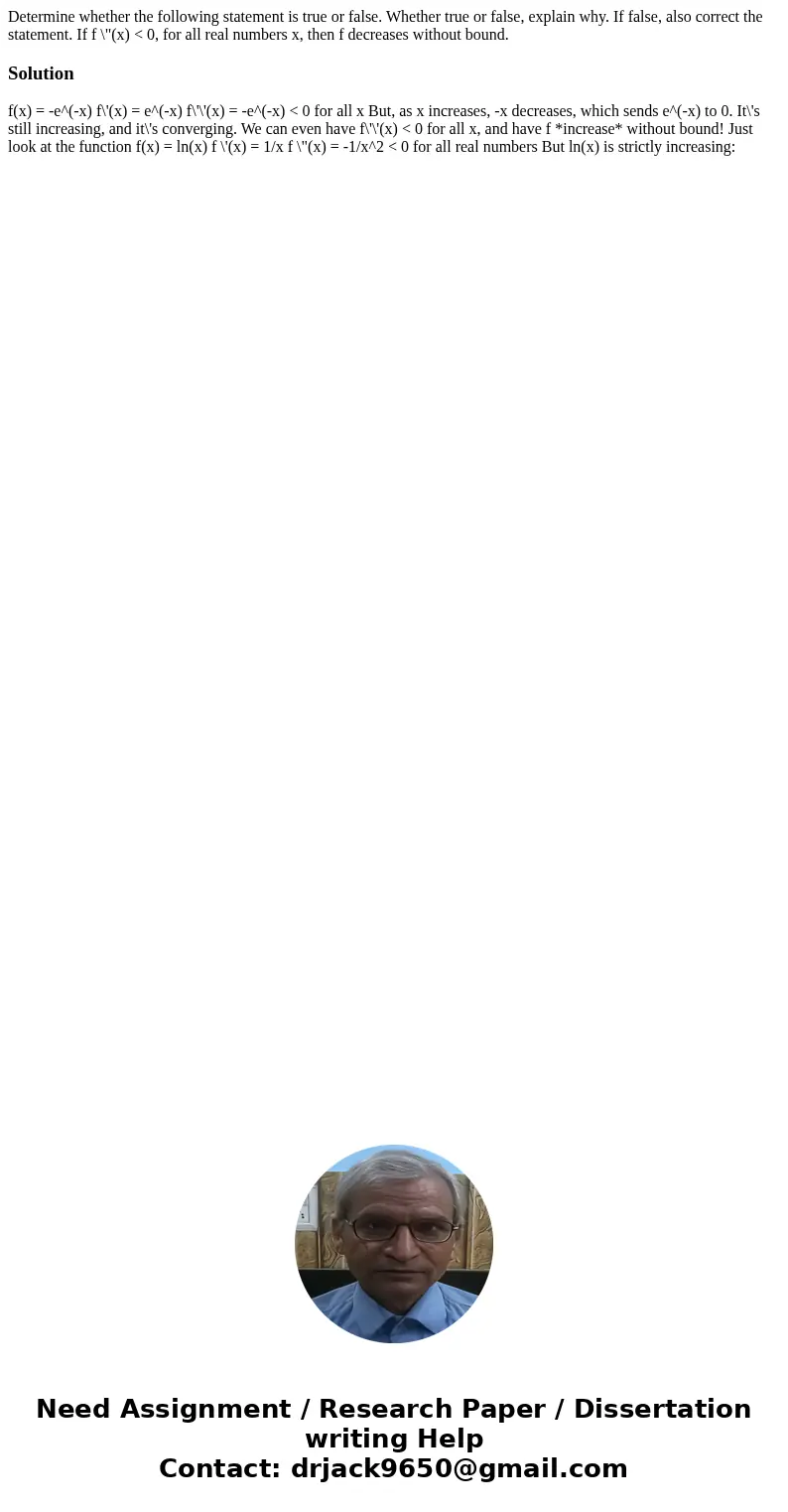Determine whether the following statement is true or false W
Determine whether the following statement is true or false. Whether true or false, explain why. If false, also correct the statement. If f \"(x) < 0, for all real numbers x, then f decreases without bound.
Solution
f(x) = -e^(-x) f\'(x) = e^(-x) f\'\'(x) = -e^(-x) < 0 for all x But, as x increases, -x decreases, which sends e^(-x) to 0. It\'s still increasing, and it\'s converging. We can even have f\'\'(x) < 0 for all x, and have f *increase* without bound! Just look at the function f(x) = ln(x) f \'(x) = 1/x f \"(x) = -1/x^2 < 0 for all real numbers But ln(x) is strictly increasing:
 Homework Sourse
Homework Sourse